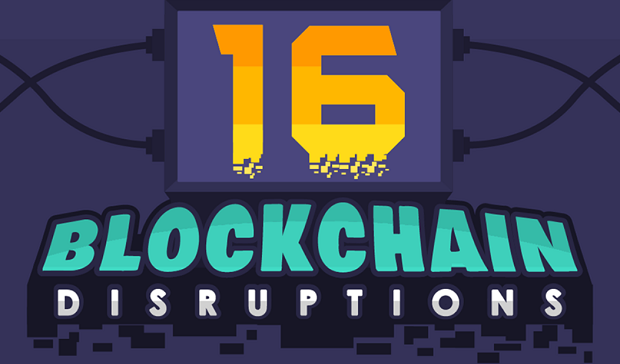* – This article has been archived and is no longer updated by our editorial team –
Blockchain – boggles the mind, doesn’t it? How it works eludes a significant portion of the global population. Yet, its disruptive technology is already beginning to change the world. Only a few years ago, you’d hear the word on the lips of a hipster techie. Today, it’s catching on fire. Don’t be surprised if your banker or even your GP casually strikes up a conversation with you about blockchain.
To start off with blockchain disruptions and the industries which are most likely to be impacted, we need to understand exactly what blockchain means. Put simply, blockchain is just transaction data. This could mean absolutely anything – Bitcoin cryptocurrency, personal finances, medical records, voter data, and whatnot. Here’s the best part. It’s public, decentralized, constantly updated. A blockchain database has no single entity as its owner and since it’s a distributed system, it cannot be hacked effectively.
Implementing blockchain technology means you won’t be needing middlemen like banks, hospitals, or even the government. Consider how Bitcoin and other cryptocurrencies work. You don’t need banks or any financial institutions to transfer Bitcoin among digital wallets. That and the transparency and security of the technology gives it the potential to entirely transform industries. Many people have already gotten in on the action with blockchain tech, with online Bitcoin exchanges, and even Bitcoin casinos becoming more popular than ever.
Getting in on the blockchain trend is not just about staying ahead of the curve. It can cut down business operation costs by a whopping 70%. With this sort of numbers, it is no wonder that businesses are trying hard to adopt the technology. The 15% of healthcare applications have already done so in 2017.
 Recommended: Eric Pesach Harbor – ” Digital Marketing Revolutionizes The World Of Commerce”
Recommended: Eric Pesach Harbor – ” Digital Marketing Revolutionizes The World Of Commerce”
If there is one single industry that stands to gain the most from blockchain, it has to be banking. Complex financial processes, a long paper trail for transaction of any sort, countless instances of bank fraud, and the sheer burden of being on top of heaps of data – conventional banking is not easy. Using blockchain can save billions here. Heavyweights such as Deutsche Bank and Royal Bank of Canada are already on it.
Let’s take a look at the younger industries. Ride sharing services such as Uber and Lyft are fast becoming a norm. However, blockchain can make some serious changes and Arcade City, a blockchain powered ride sharing prototype, is taking the lead. A completely decentralized peer-to-peer network, independent drivers can choose to work any way they like and fix their own rates.
This is not it. There are many more industries which could be in for an overhaul. Supply chain management, government work, healthcare, cloud computing are just some more which are beginning to use blockchain. Even good old Walmart is jumping onto the blockchain bandwagon.
The last couple of years, the value of Bitcoin, a product of the blockchain technology, spiraled upwards as the world watched in awe. And there’s yet more to come. As more industries start incorporating blockchain, finding ingenious new uses and transforming business processes, we are about to witness what the legend of blockchain looks like in full swing. Stay braced!
Written by the team from Bitfortune.net

